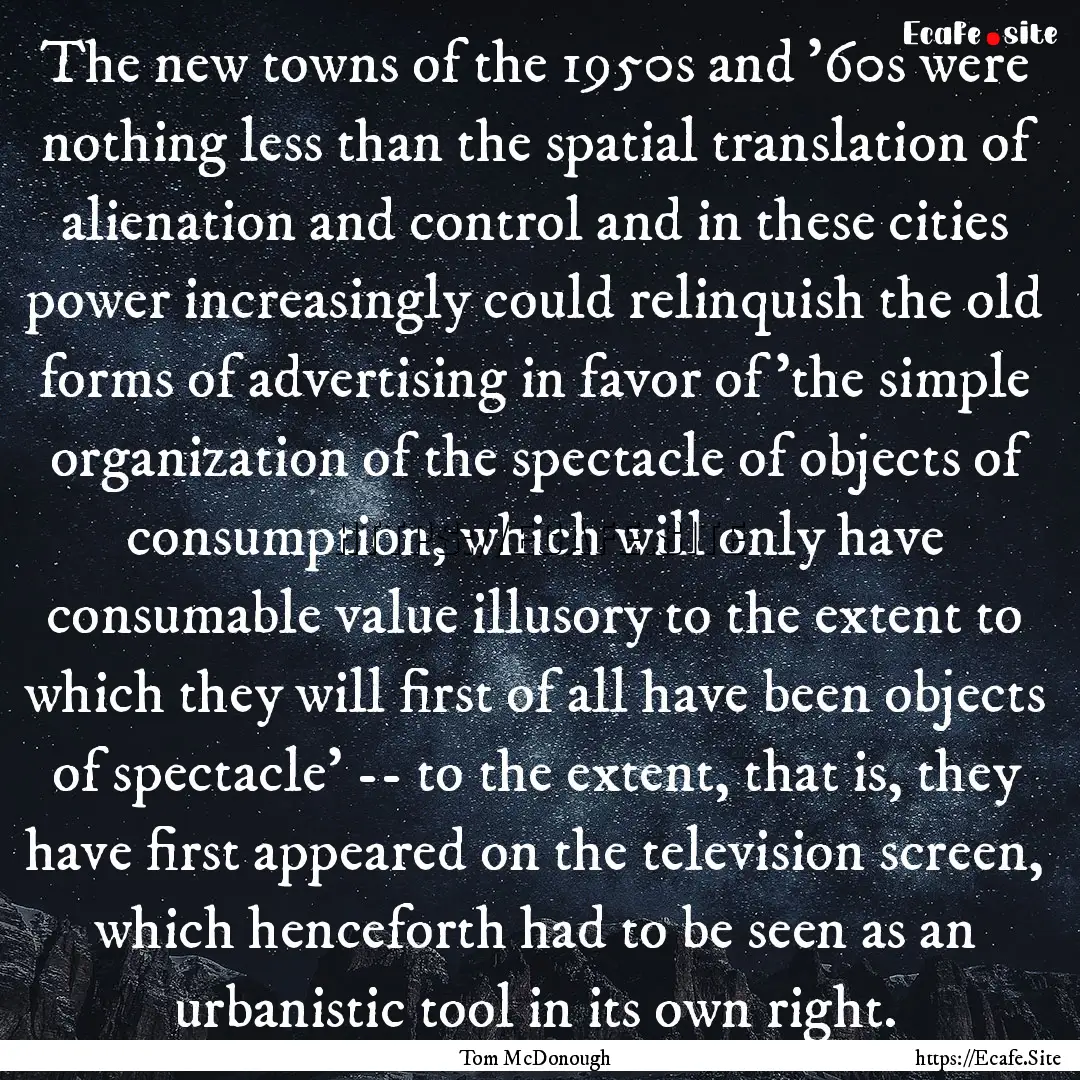
Report, if you have a problem with this page“ The new towns of the 1950s and '60s were nothing less than the spatial translation of alienation and control and in these cities power increasingly could relinquish the old forms of advertising in favor of 'the simple organization of the spectacle of objects of consumption, which will only have consumable value illusory to the extent to which they will first of all have been objects of spectacle' -- to the extent, that is, they have first appeared on the television screen, which henceforth had to be seen as an urbanistic tool in its own right. ”

Tom McDonough
From : The Situationists and the City: A Reader



